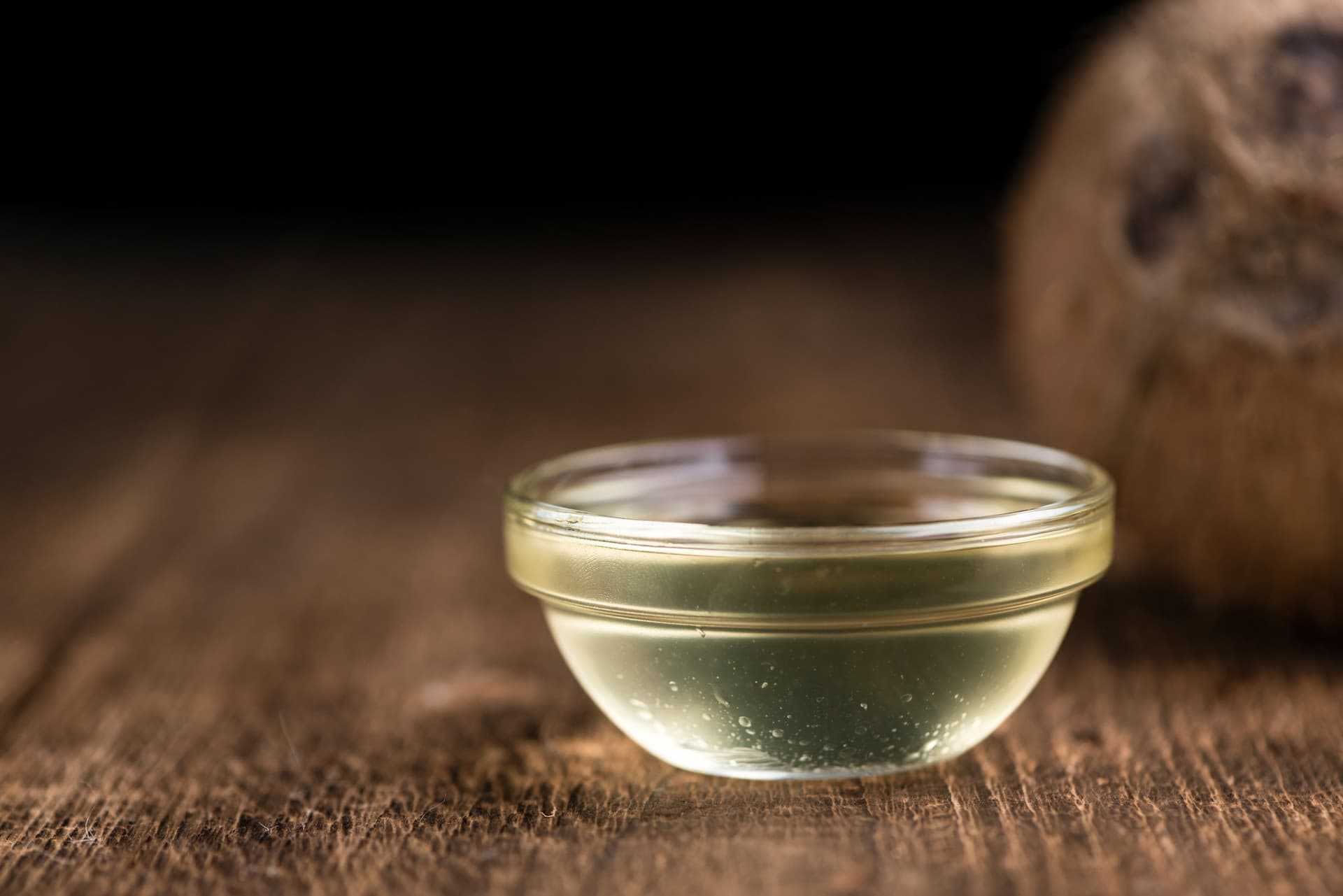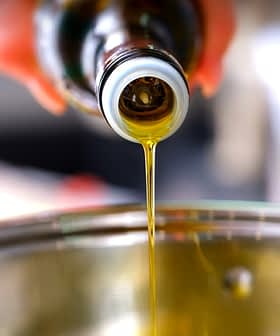The Health Benefits of Coconut Oil: Facts and Fiction
A meta-analysis of 16 clinical trials found that coconut oil consumption increased both LDL and HDL cholesterol levels relative to other nontropical vegetable oils.
 A palm plantation at East Asia.
A palm plantation at East Asia.  15.1K reads
15.1K readsCoconut oil has been promoted as a miracle solution for weight loss, lowering cholesterol, and even curing Alzheimer’s disease, but its high saturated fat content can actually increase LDL cholesterol levels. The lauric acid content in coconut oil does not negate its negative effects on cholesterol, and while it can be enjoyed in moderation as part of a healthy diet, it is not a superfood with the benefits often claimed by its supporters.
Coconut oil has gained a certain mystique over the past few decades.
A quick search online would have one believe that the edible oil extracted from the wick, meat and milk of the coconut palm fruit can do everything. Its consumption is touted as a miracle weight loss solution, a way to lower cholesterol, an aphrodisiac and even a cure to Alzheimer’s disease.
Indeed, coconut oil enjoys cult-like support from its fans, so much so that when the American Heart Association cautioned that overconsumption of coconut oil poses a greater risk than lard consumption for the heart, the online fury was palpable.
See Also:Olive Oil Basics“The coconut industry – or some other industry – is promoting coconut oil,” said Frank Sacks, the lead author of that advisory and a cardiovascular disease prevention research at the Harvard T.H. Chan School of Public Health. “People are gullible and will listen to advertising, especially when it comes to foods.”
As with many things in life that sound too good to be true, there are certain stipulations and limitations to the benefits provided by coconut oil consumption.
Composition of coconut oil
In order to cut through the myths and misinformation that abound about the product, it is helpful to first understand what coconut oil actually is.
Unlike olive oil or other vegetable oils, coconut oil is usually solid at room temperature. This is because it comprises mostly saturated fats – about 87 percent, to be exact. By way of comparison, butter is only 63 percent saturated fat and extra virgin olive oil is only 14 percent saturated fat.
Saturated fat consumption increases plasma low-density lipoprotein (LDL) cholesterol concentrations. High levels of LDL cholesterol are widely linked to atherosclerosis since the LDL cholesterol deposits some of its cholesterol load onto the arterial wall as it travels through the bloodstream, leading to inflammation and in the worst cases, obstruction of the arteries.
See Also:Health NewsIn contrast, a 2015 study from the University of California-Davis Olive Center found that consuming 20 grams, 1.5 tablespoons, of extra virgin olive oil each day for at least six weeks may lower the concentration of LDL cholesterol in the blood.
However, the proponents of coconut oil tend to brush over its LDL cholesterol content and emphasize that its consumption raises high-density-lipoproteins (HDL) cholesterol, which has long been thought to protect against heart disease.
The evidence for this claim is far from conclusive. Clinical trials with HDL-raising drugs could not demonstrate a clear-cut link between higher rates of HDL cholesterol in the blood and lower instances of cardiovascular disease.
“It is unknown which, if any, foods or nutrients that raise HDL cholesterol do so in a way that reduces atherosclerosis and coronary events,” Sacks said.
Due to its high levels of saturated fats, coconut oil is also a calorie-rich food, supplying 117 kilo-calories per tablespoon, which is more than butter or lard.
Additionally, coconut oil contains no cholesterol or fiber, while only providing trace amounts of vitamins, minerals and plant sterols, which block the absorption of cholesterol in the body.
Coconut oil marketing myths
Slickly-produced YouTube videos and seemingly authoritative articles that propagate online with catchy clickbait headlines that do address the LDL cholesterol content of coconut oil will often argue that this does not matter because of coconut oil’s lauric acid content.
Coconut oil gurus argue that lauric acid is a short-chain saturated fatty acid. These short-chain fatty acids are more water-soluble than longer chain fatty acids. They do not stick to arterial walls and have a fairly negligible impact on LDL cholesterol production.
See Also:Switching From Coconut Oil to Olive Oil Can Be Good for Your HeartComprising 47 percent lauric acid, coconut oil does indeed have a plurality of this saturated fatty acid. However, experts argue that calling lauric acid a short-chain fatty acid is a misnomer.
Composed of 12 carbon atoms, lauric acid would technically fit the definition of a medium-chain fatty acid, which is also fairly water-soluble and has a much more limited effect on LDL cholesterol creation.
However, lauric acid actually behaves more like a long-chain saturated fatty acid since it is packaged into chylomicrons in the blood, a mechanism that increases LDL cholesterol by circulates the fatty acid chain for much longer than shorter chain fatty acids.

A meta-analysis of 16 clinical trials found that coconut oil consumption increased both LDL and HDL cholesterol levels relative to other nontropical vegetable oils.
LDL cholesterol increased by 10 points, while HDL cholesterol increased by four points. Only palm oil consumption increased cholesterol more than coconut oil. The meta-analysis further concluded that coconut oil consumption has no significant effect on body weight or body fat percentage, compared to other vegetable oils.
Beware of suspect science
Interestingly, many of the health claims from coconut oil gurus that the product’s heart-healthy, cholesterol-lowering and energy-providing effects are based on one study.
However, what they often neglect to mention is these findings examined a specific formation of coconut oil made from 100-percent medium-chain triglycerides instead of lauric acid and the other primary saturated fatty acids – myristic acid (18 percent), palmitic acid (9 percent) and caprylic acid (7 percent).
The medium-chain triglycerides in this iteration of coconut oil meant most of the saturated fat was absorbed into the blood instead of being stored in chylomicrons. After digestion, the medium-chain triglycerides travel to the liver where they are used for energy.
This formulation of coconut oil is not sold commercially. In fact, most commercially available coconut oil comprises only four percent medium-chain triglycerides.
Different types of coconut oil
Just like olive oil – and unlike most other vegetable oils – there are a few ways to produce coconut oil.
Coconut oil can be made by pressing fresh coconut flesh or dry coconut flesh.
When it is made using fresh coconut flesh, the result is a mixture of coconut milk and oil. The milk is separated from the oil via fermentation, centrifugation or by the use of enzymes and the resulting product is virgin or extra virgin coconut oil.
Unlike olive oil, these terms are not regulated by any government or agencies and are synonymous.
Refined coconut oil is made from dry coconut flesh, also known as copra, which is pressed to release the oil. The oil is then refined in a similar manner to most other seed oils and deodorized before it can be safely consumed.
Additionally, either one of these coconut oils can be partially hydrogenated, a process in which hydrogen atoms are added to the unsaturated fats in the oil. This process increases the shelf-life of the product
Consume coconut oil in moderation as part of a healthy diet
While coconut oil is far from a superfood, there is no problem enjoying it in moderate amounts as part of a healthy diet.
Coconut oil serves as an excellent substitute for butter when baking vegan goods. Using small amounts of virgin coconut oil also adds a subtle coconut flavor to sauteéd vegetables, sauces and curries.
Coconut oil is also an effective moisturizer for skin and hair. Massage small amounts directly onto the skin or hair and leave it in place for the desired amount of time before washing it out.
Share this article









